Why TENCEL™ Modal Is the Better Fabric for Baby Pajamas Over Bamboo
As parents, we all want what’s best for our little ones. From choosing the softest pajamas to finding materials that are gentle on their sensitive skin, there’s so much to think about. Of course, we also want to make choices that are kind to the planet. Enter the debate between bamboo fabric and TENCEL™ Modal. While bamboo has become a go-to for many eco-conscious parents, TENCEL™ Modal is another fabric that deserves your attention. Let’s explore both and figure out which is the best fabric for your baby’s pajamas and baby clothes.
What Is Bamboo Fabric and Why Is It So Popular?
Bamboo as an Eco-Friendly Option
You’ve probably heard the buzz or noticed a lot of bamboo baby clothes popping up in stores lately. That’s because bamboo fabric is often marketed as a sustainable fabric, which sounds perfect for parents who care about the environment. And who doesn’t want to do their part in helping the planet while keeping their baby cozy? The bamboo plant grows super fast—sometimes up to 3 feet in just 24 hours! It requires very little water and no pesticides, which is a big win for the environment.
Why Bamboo Feels So Good for Baby Clothes
Let’s not forget the comfort factor. Bamboo fabric is incredibly soft, which is why it’s so popular for baby pajamas and baby clothes. You know how we always want our babies to feel snug and safe, right? Bamboo provides that buttery softness that makes you feel like your baby is wrapped in a cloud. It’s no wonder why many parents are quick to pick up bamboo baby products when they’re out shopping for their little ones.
How Is Bamboo Fabric Made?
The Manufacturing Process of Bamboo Fabric
Okay, here’s something that might surprise you. Even though bamboo fabric starts as a natural plant, the fabric production process isn’t as natural as you’d think. Most of the bamboo fabric you see on shelves is actually bamboo viscose or rayon. So, how do they get that soft fabric from the bamboo plant? It’s a pretty chemical-heavy process. The fibers of bamboo plants are dissolved using chemicals like sodium hydroxide (yikes!), turning the bamboo cellulose into the soft material we know and love.
Is Bamboo Viscose Really Eco-Friendly?
This is where things get a little tricky. The bamboo plant itself is super sustainable—it grows fast, doesn’t need much water, and doesn’t require pesticides. But, when it’s turned into bamboo viscose, that eco-friendliness can take a bit of a hit because of the chemicals involved. It’s important to know how your bamboo pajamas or bamboo baby clothes are being made, because not all bamboo fabrics are created equal. Some manufacturers are working toward using more sustainable methods, but as moms, we really need to dig deeper into how our baby’s clothes are produced.
Is Bamboo Fabric Truly Sustainable?
Sustainability from Plant to Fabric
Yes, bamboo is a sustainable plant—it grows rapidly and doesn’t need much help to thrive. This sounds great for the environment, but the process of turning bamboo into fabric can sometimes negate its initial eco-friendly appeal. The chemicals used to make bamboo viscose aren’t exactly gentle on the planet, and the process consumes a lot of water. So, while the bamboo plant itself is sustainable, the overall environmental impact of turning it into fabric is worth considering.
How Long Does Bamboo Fabric Last?
Another important factor for us moms is durability. I mean, how many times do we wash our baby’s clothes in a week? The truth is, bamboo fabric tends to pill and wear out after frequent washes. Studies suggest that bamboo fabric starts showing wear after just 20-30 washes, meaning it may not last as long as we’d like. And let’s be real, nobody wants to keep replacing baby pajamas just because they lose their softness too quickly. This might not make it the most sustainable option in the long run, especially when compared to other fabrics like TENCEL™ Modal.
What Is TENCEL™ Modal and How Does It Compare to Bamboo?
What Makes TENCEL™ Modal Unique?
Now, let’s talk about TENCEL™ Modal. If you haven’t heard of it yet, you’re in for a treat! This eco-friendly fabric is made from wood pulp, most commonly sourced from beechwood trees. Beechwood is naturally renewable, which already gives TENCEL™ Modal an eco-friendly edge. The production process uses significantly fewer chemicals and less water than the process for creating bamboo viscose. Moms like us who care about the environment will love that.
How Does TENCEL™ Modal Compare to Bamboo?
When we put TENCEL™ Modal up against bamboo fabric, the biggest difference lies in how each fabric is produced. TENCEL™ Modal is made using a closed-loop system, meaning that nearly all the water and chemicals used during production are recycled and reused. This makes TENCEL™ Modal not only sustainable but also an excellent choice for moms who want to reduce their environmental footprint while dressing their little ones in something cozy.
Why Is TENCEL™ Modal Considered an Eco-Friendly Fabric?
Closed-Loop Manufacturing Process
One of the biggest reasons I’m such a fan of TENCEL™ Modal is its closed-loop manufacturing process. This means that nearly all of the water and solvents used to create the fabric are recycled. So, we’re talking about a process that uses significantly fewer resources than traditional fabric production. For moms who are conscious of the planet’s future, that’s a huge relief!
TENCEL™ Modal is Biodegradable
Let’s also talk about the fact that TENCEL™ Modal is biodegradable. We all want the best for our babies, but it’s nice to know that when our kiddos outgrow their pajamas, we’re not contributing to landfills. TENCEL™ Modal naturally breaks down, which is an added bonus for anyone thinking about long-term sustainability.
Which Fabric Is Better for Sensitive Skin: Bamboo or TENCEL™ Modal?
Hypoallergenic Properties of Both Fabrics
Now, if your baby is anything like mine, you’re probably very careful about what touches their skin. Sensitive skin is no joke, and we want to avoid any irritation or discomfort. Both bamboo and TENCEL™ Modal are marketed as hypoallergenic, but let’s look at what that really means.
Which Fabric is Gentler on Baby Skin?
While bamboo fabric is generally soft, the chemicals used during its production can sometimes leave behind residues that aren’t great for sensitive skin. On the other hand, TENCEL™ Modal is made using fewer chemicals, meaning it’s far less likely to irritate your baby’s skin. TENCEL™’s smooth and natural fiber structure makes it ideal for babies prone to rashes or eczema. Let’s face it, anything that reduces our baby’s discomfort is a win in my book!
Durability: Bamboo Pajamas vs. TENCEL™ Modal Pajamas
How Well Do Bamboo Pajamas Hold Up?
As moms, we know our babies are rough on their clothes—crawling, running, and playing all day long. Bamboo pajamas might start out feeling super soft, but after 20-30 washes, you’ll start to see pilling and wear. That means we’re replacing pajamas sooner than we’d like, which isn’t great for our wallets or the environment.
The Longevity of TENCEL™ Modal Pajamas
TENCEL™ Modal, on the other hand, holds up much better. Studies show that it can last through many more washes without pilling or losing its softness. If you’re like me and want baby clothes that can be passed down to siblings or cousins, TENCEL™ Modal is the better choice. It stays soft and durable, even after countless rounds in the washing machine.
Breathability and Moisture-Wicking Properties of Bamboo and TENCEL™ Modal
Which Fabric Keeps Babies Cool and Dry?
Babies can get hot and sweaty pretty easily, especially at night. Both bamboo and TENCEL™ Modal are known for being breathable, but TENCEL™ Modal really shines here. It has 50% better moisture absorption than cotton and significantly reduces heat buildup.
Moisture-Wicking Abilities
This means that for those sweaty little sleepers, TENCEL™ Modal keeps them cool and dry by wicking moisture away from their skin. As moms, we know how important a good night’s sleep is, both for our babies and for us. Choosing a fabric that keeps your little one comfortable all night can make a big difference in how well they rest (and how well we do, too!).
Which Fabric Is Easier to Care For: Bamboo or TENCEL™ Modal?
Washing and Caring for Bamboo Fabric
We’re busy, right? The last thing we want to deal with is clothing that needs special care. While bamboo fabric is low-maintenance to wash, it does tend to pill and lose its softness after repeated washes. So, even though it might seem easy at first, you may find yourself needing to replace those beloved bamboo pajamas more often than you’d like.
Low-Maintenance Benefits of TENCEL™ Modal
In comparison, TENCEL™ Modal stays soft and smooth even after multiple washes. It’s also more resistant to shrinking, so you won’t have to worry about those adorable little pajamas getting too snug after a trip through the wash. Less stress on laundry day? Sign me up!
Which Fabric Is Best for Baby Pajamas?
Why TENCEL™ Modal Comes Out on Top
When choosing between bamboo and TENCEL™ Modal for your baby’s pajamas, it’s clear that TENCEL™ has a few major advantages. It’s softer, more durable, and much more environmentally friendly when it comes to the production process. Plus, it’s better for babies with sensitive skin and offers superior breathability and moisture-wicking properties.
TENCEL™ Modal vs. Bamboo Fabric Comparison Chart
| Feature | TENCEL™ Modal | Bamboo Fabric |
|---|---|---|
| Durability | Lasts more washes with no pilling | Begins to pill after 20-30 washes |
| Hypoallergenic | Yes, gentle on sensitive skin | Can cause allergic reactions due to chemicals |
| Breathability | Absorbs 50% more moisture than cotton | Moderate breathability |
| Water Usage in Production | 95% less water than bamboo production | Requires significantly more water |
| Environmental Impact | Biodegradable, sustainable, fewer greenhouse gases | Chemical-heavy processing, can cause deforestation |
| Softness | Retains softness even after many washes | Soft but loses softness over time |
| Eco Soft Technology | Yes, ensures lasting softness and durability | No |
| Botanic Origin | Derived from sustainably managed beechwood | Sourced from bamboo, but with deforestation concerns |
Tiny Clothes, Big Impact
At Tiny Knot Co.®, we’re redefining baby apparel with our TENCEL™ Modal baby pajamas that are soft, durable, and sustainable. These pajamas are designed to be stretchy, breathable, and long-lasting, ensuring your little one stays comfortable day and night. Plus, our patent-pending headband eliminates the problem of uncomfortable imprints—something we all appreciate as moms!
And remember, for every item sold, we donate to No Kid Hungry, providing 10 meals to children in need. So when you choose Tiny Knot Co., you’re investing in more than just quality sleepwear—you’re making a positive impact on the world.
Cliff Notes:
- Bamboo fabric is soft and sustainable, but its chemical-heavy production process can be less eco-friendly.
- TENCEL™ Modal is made using a closed-loop system, making it more sustainable and biodegradable.
- TENCEL™ Modal is more durable, lasting more without pilling, while bamboo starts to wear out after 20-30 washes.
- Both fabrics are breathable, but TENCEL™ outperforms bamboo in terms of moisture-wicking and heat regulation.
- TENCEL™ is gentler on sensitive skin because it’s produced without harmful chemicals.
By choosing TENCEL™ Modal, you’re opting for a sustainable, comfortable, and long-lasting fabric that’s perfect for your baby’s delicate skin.
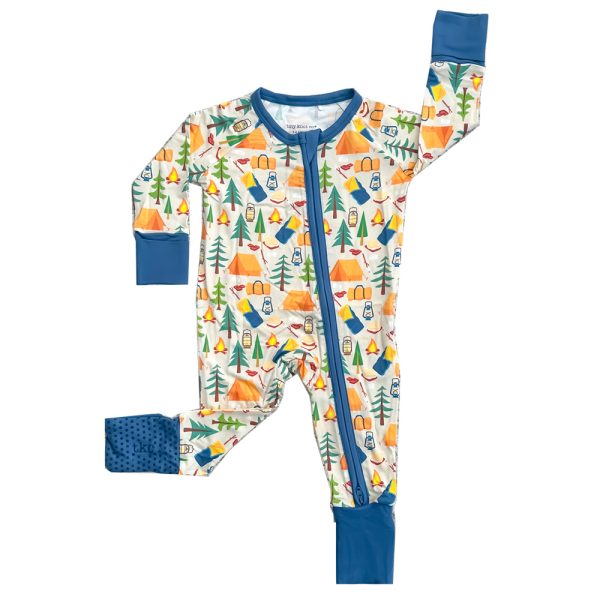
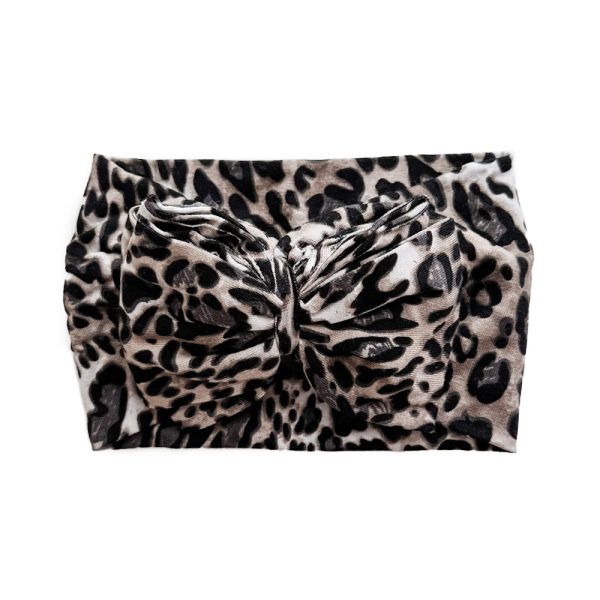
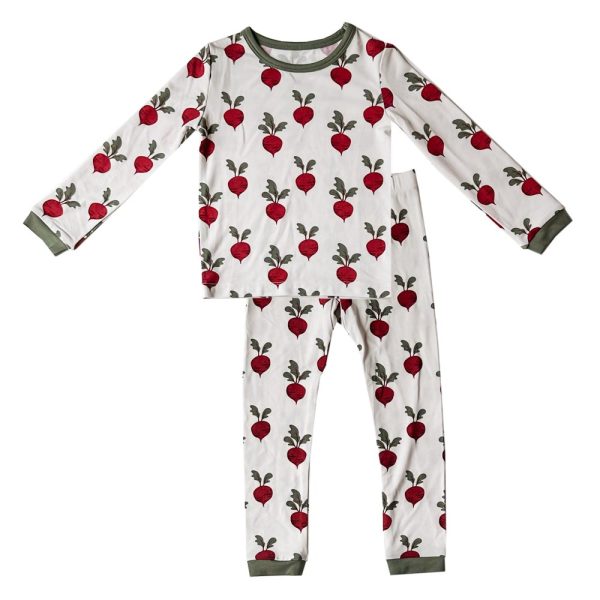
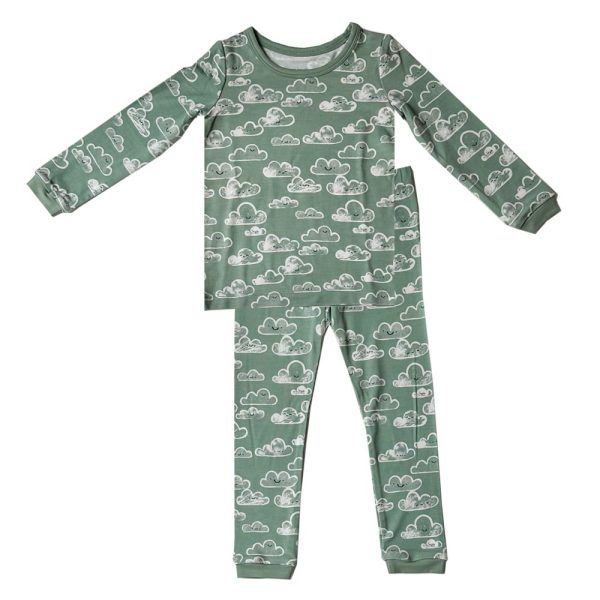
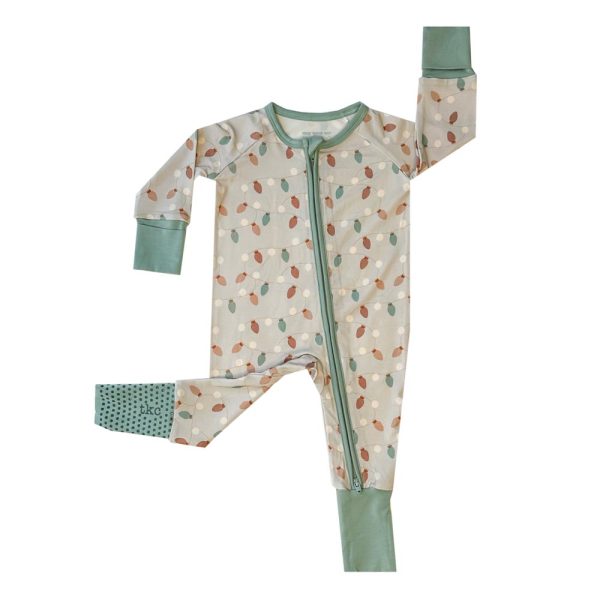

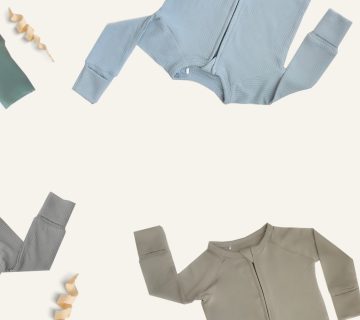
No comment